by Paul Kasun
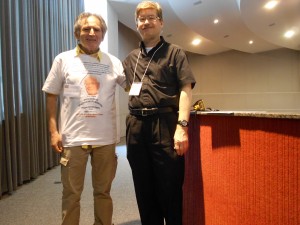
Several weeks ago, I attended a conference of the founders of the Commission for the Study of the History of the Church in Latin America (CEHILA) in Belo Horizonte, Brazil. This year, CEHILA brought together academic scholars to “decolonize” the ideology, practice, and worship of Christianity that has characterized Christian churches in Latin America for centuries, as well as to address the present situation of Christian churches in Latin America and to determine how CEHILA could respond to the present poverty crisis. José A. G. Moreira invited me to the conference because of my interest in Liberation Theology from a sociological perspective. My dissertation focuses on the Mayan K’iche’ of the Western Highlands of Guatemala, so I gave a presentation on the migration of Guatemalans to the United States as a case study to understand the demographics of migration and the influence of migrants on the attitudes of relatives in their home country. Though the conference featured a variety of presentations, I will focus here on just a few.
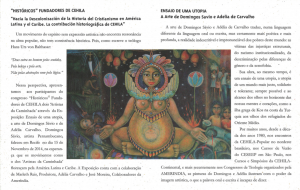
I begin with a painting by Adélia Oliveira de Carvalho, a Brazilian artist, whose work is featured on the CEHILA brochure, poetically expressing the overarching themes of the conference. The indigenous woman in the middle symbolizes the strength of humanity in Latin America, which has withstood centuries of struggles against unjust social structures, organized violence, and institutionalized racism. Around the main figure, Adélia paints various aspects of the Latin American reality, including agriculture, industrialization, war, and assassinations.
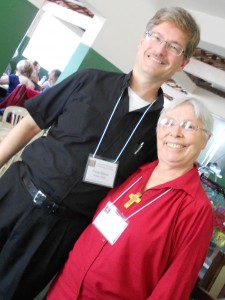
One of CEHILA’s founders and most prolific writers is Enrique Dussel, who is currently editing a volume of his collected works. Of the many challenges facing Christianity in Latin America, Dussel focused on the need to re-examine the work of Karl Marx, specifically his main work, Capital. He openly questioned why liberation theologians have not quoted from Marx’s main book for more than twenty-five years. Rather than seeing the end of liberation theology, Dussel sees the downturn in the fortunes of liberation theology as a temporary win for the social forces of neo-colonialism, neo-imperialism, and neo-liberalism. Inequality and various forms of stratification continue to be extreme in Latin America and Dussel sees the need to strengthen liberation theology by sociological analysis. Moreover, he stated that the future of Christianity is tied to its ability to synthesize with the advances in sociology, specifically in its ability to advance the ethical, philosophical, and economic work of Marx.
Johannes Meier, Paulo Suess, and José O. Beozzo described alternative explanations of the meaning of Christianity, which contrasted with colonial and neo-liberal explanations of Christianity’ meaning. They focused on the point of view of the oppressed, which has been obscured. They asked how have Protestant and Catholic institutions been a part of the oppressive structures of society, and how can that change today? As Pablo Moreno (First Baptist University in Cali, Colombia) argues, Evangelical theology has not synthesized its belief system with social policies that benefit the poor.
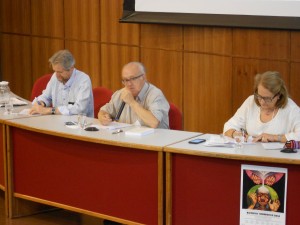
Arguably the most significant moment for Christian churches in Latin America has been during the changes made by the Catholic Church’s Vatican Council II, 1962-1965, and Medellín Scholars Ana María Bidegain, Silvia Scatena, and Mauro Passos discussed how those committed to the poor can use the documents of the Council to advocate for improving the social conditions of the poor. Bidegain focuses on the continued challenges of decolonization, racism, and gender within societies and Christian denominations, while María Luiza Marcílio and Pablo Richard developed themes of de-colonialization in Central America, Brazil, and other parts of Latin America.
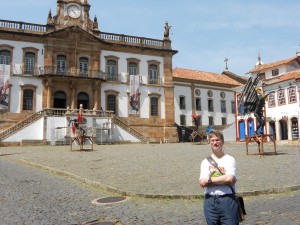
Overall, the CEHILA conference expanded my understanding of the work of Latin American scholars. My own sociological research complemented the work of Latin American liberation theologians, anthropologists, sociologists, and philosophers and their work complemented mine. A take-away from this conference is that a common commitment to see the world through the eyes of the poor, across different disciplines, may be the best chance to build a unified coalition to build a civil society based on humanism.
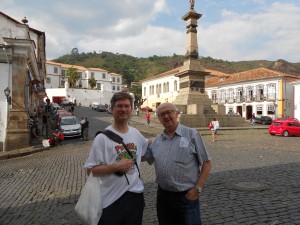
Paul Kasun is a doctoral candidate in Sociology at the University of Texas at Austin. His doctoral research compares the effects of migration in two sending communities in the western highlands of Guatemala. As a Missionary Benedictine priest, he has worked as an immigration advocate helping people primarily from Mexico and Central America.
